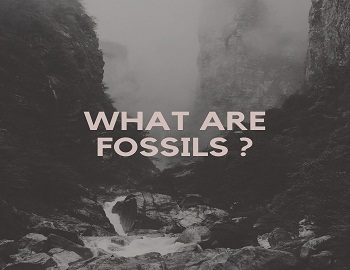
The dead remains of former living organisms are called fossils. The branch of biology which deals with the study of fossils is called Paleontology. Fossils are the petrified remains of prehistoric animals and plants which have become extinct. The remains or impression of the extinct species left by them in the sedimentary rocks is called fossils and they provide direct evidence to support the process of organic evolution. Fossil tells us that evolution has taken place gradually over a long period of time. The study of fossils also reveals a definite relationship between various groups of animals and plants. For example- the fossils of Archaeopteryx show the bird-like feature as well as reptilian features.
The avian or bird-like feature of Archaeopteryx are-
- Presence of a beak.
- Presence of wings and feathers.
While the reptlian feature are-
- Presence of teeth inside the beak.
- Presence of long-tail, claws, scales on the feet.
Significance of fossils:
- Fossils are direct evidence in support of evolution.
- Living forms with simple organization appeared earlier than complex forms.
- The complete fossil history of many animals indicates the transition from an earlier simple to a later complex form.
- The process of fossils formation is called fossilization.
Age Determination of a fossil:
The age of a fossil is usually determined by analyzing the radioactive substances present in the rock from which it has been recovered.








Comments (No)